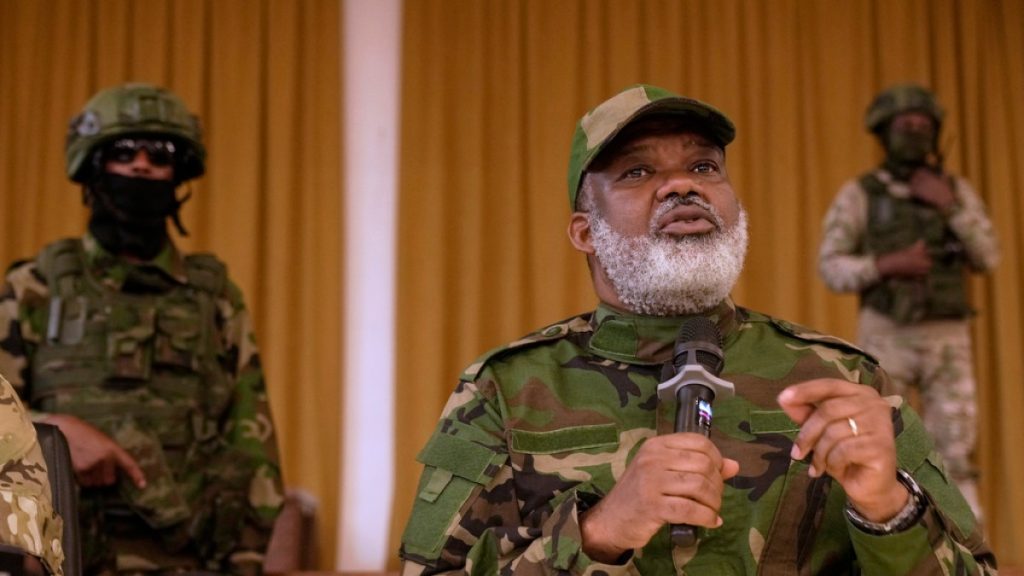The M23 rebel group, operating in the eastern Democratic Republic of Congo (DRC), declared a unilateral ceasefire beginning February 4, 2025, citing humanitarian concerns as the primary motivation. This announcement followed their rapid advance across the region, culminating in the capture of Goma, the largest city in eastern DRC, a week prior. The swift offensive, reportedly backed by Rwandan troops, resulted in a devastating humanitarian crisis, with the United Nations estimating at least 900 fatalities and hundreds of thousands displaced. The M23’s statement, released on social media, emphasized the ceasefire as a response to the dire humanitarian situation exacerbated by the Kinshasa regime. While the rebel group asserted their commitment to protecting civilians, the DRC government remained silent on the ceasefire declaration, leaving its effectiveness uncertain.
The M23, also known as the Alliance Fleuve Congo (AFC), further clarified that their objective was not to capture additional territories, specifically mentioning Bukavu, another major city in eastern DRC. While their previous pronouncements hinted at a broader ambition of seizing the DRC capital, Kinshasa, their recent statement sought to alleviate fears of further territorial expansion. Instead, they emphasized their focus on defending their current positions and ensuring the safety of the civilian population, seemingly aiming to portray themselves as a protective force rather than an aggressive entity. This shift in rhetoric may be an attempt to gain international legitimacy and reduce pressure from regional and international actors calling for an end to the conflict.
The humanitarian toll of the recent fighting has been staggering. The UN reported recovering at least 900 bodies from the streets of Goma, acknowledging that the actual death toll likely surpasses this grim figure due to unreported casualties and bodies yet to be retrieved. Local authorities documented nearly 2,900 injuries, painting a stark picture of the violence and suffering endured by the population. The sheer scale of the humanitarian crisis underscores the urgent need for aid and stability in the region, a need further emphasized by the M23’s declared ceasefire.
The ceasefire announcement coincided with the upcoming regional summit scheduled for the weekend, with expectations of attendance from both DRC President Felix Tshisekedi and Rwandan President Paul Kagame. Their presence would mark a significant step towards dialogue, as previous attempts at mediation have been hampered by their absence. Kenya, currently holding the rotating presidency of the East African Community bloc, expressed optimism about their participation, raising hopes for a potential breakthrough in resolving the long-standing conflict. The international community, including the G7 foreign ministers, echoed the call for renewed negotiations and emphasized the importance of ensuring unimpeded access for humanitarian aid to reach those in desperate need.
The conflict in eastern DRC is deeply rooted in historical ethnic tensions, with the M23 claiming to represent the interests of the Tutsi population who sought refuge in the DRC following the Rwandan genocide in 1994. The DRC government, however, accuses Rwanda of supporting the M23 and exploiting the country’s vast mineral resources, including valuable rare earth deposits. These accusations fuel the complex political and economic dynamics of the conflict, making a lasting resolution even more challenging to achieve.
The M23’s declared ceasefire, while a potentially positive development, needs to be viewed cautiously. The DRC government’s silence raises concerns about its commitment to reciprocating the ceasefire, leaving the possibility of renewed fighting open. Furthermore, the M23’s track record of broken promises and shifting objectives necessitates skepticism about their genuine commitment to a peaceful resolution. The upcoming regional summit and continued international pressure represent crucial opportunities to push for a sustainable peace process, prioritize humanitarian relief, and address the underlying causes of this protracted conflict. The focus should be on ensuring the safety and well-being of the Congolese people, holding all parties accountable for human rights abuses, and fostering a lasting solution that addresses the complex political, economic, and ethnic dimensions of the crisis. The international community must continue to monitor the situation closely and apply pressure on all parties to engage in meaningful dialogue and work towards a just and durable peace.

